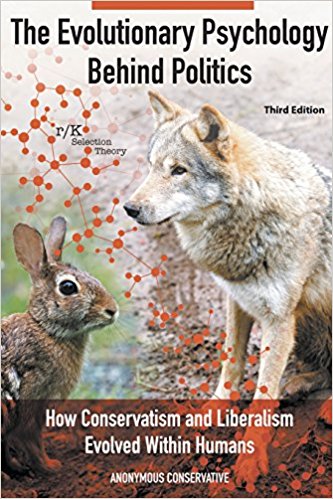This is a proposed skeletal structure that many communities of approximately 50 to 150 members could use to build an intentional community around.
1 A goal or value the community is dedicated to.
2 A regular meeting where each member ceremonially affirms their comment to the group and group values.
3 A requirement for high commitment behavior, ideally connected to the community value.
Things like always wearing unusual clothing, strict dietary requirements, or joining in a one hour dawn meditation each day can cement a community together. They can create a sense of identity, belonging and connection.
If the comment requires giving money (and at least when this is embedded in a Game A context money might be needed) the level of giving needed to show commitment should be scaled to the member's ability to give. (There can also be a ownership component that I’ll get to later)
4 An internal gift economy based on public gratitude.
There should be an explicit social norm that members give gifts to help the community and each other, and also an explicit norm for publicly announcing gratitude in a specific way. This way might be a social media type site where people tag people they are grateful to and describe the gift, or this could be done through a physical bulletin board or announced at the weekly meeting. It would also be important to a long term records of these gratitude statements in such a way that it would be easy for other members to see a member had given to the community through the years.
There would be a general expectation of reciprocal giving and that ideally everyone would get approximately what they gave in the end. But it would be emphasized that the givers were not specifically owed or promised anything. There would be a firm rule that no one should ever try to put a number on it, should never try to figure out what a give is “worth” and do any sort of accounting on it. The community should never allow the convenience of replacing a complex narrative of the gratitude log, that requires connecting to a real person, with some sort of balance of credits or points that reduces a relationship to a cold and impersonal transaction.
Note: In the western tradition there is an idea of a type of giving that is given with no expectation of return or reward or acknowledgement. It often encourages giving anonymously and gifts that are unconditional as to the worthiness of the recipient. This is coming from the Christian tradition and is primarily about cultivating a growth of Christlikeness in the heart of the giver and not about providing benefits to the community. If this type of giving is also encouraged by the community goals it should be made clear that these are two different types of giving.
5 Mentorship and intentional relationship building
A purposely structured program of mentorships and small groups that creates a network of personal relationships within the community and and reinforces community norms.
One issue that will definitely come up is that since we are there for the work put into the gifts we give they seem more prominent and important. Making sure everyone is getting and giving all the gratitude that is deserved, and the evaluation of gratitude narratives can be agreed on in a shared perspective among community members.
6 Dispute resolution
While major crimes would need to be taken care of by the police, The community should have a preset and published procedure for addressing everything from personal friction to petty crimes between members with a view to both a felt sense of justice and the restoration of community function.
7 Split communal/private ownership
Individual members having some ownership of their own private spaces but also for the community to have a property interest that helps keep the group together. My favorite example of this would be a mobile home park. The intentional community could own or lease the land and build facilities for community members that would make the park attractive to live in. Members could own their mobile homes and potentially take it with them if they ever wanted to leave. Even if a member wanted to sell their home in place, the fact that non-members wouldn’t have access to the park facilities would help with getting it sold to another person qualified and willing to be a community member.
8 Shared meals and community shared space
A least one a week (though usually more often) the community would provide a meal for all the members to come together at. There would also be shared facilities for the members to uses that would draw members together
9 Probationary period
To keep focus and encourage continuous community, new perspective members should have a probationary period of from six months to two years before they become full members
10 Non member dependents
A structure should be set up to make sure children of members are supported. Though should also be given to others, like aging parents, that members might want to bring in and have community support for caring for. The goals of some communities would open the door to taking in local individuals in need the the intentional community as a whole helping support them.
11 Demurrage ownership
These communities are often going to have considerable start up costs, often needing to secure land or make considerable investment in facilities for the community. One way to handle community property is just say that whatever governance structure the intentional community uses for everyday affairs that also applies to any big decisions, like real estate, and that no one has an ownership interest accepts the community as a whole acting through its formal governance. But there are a couple reasons why putting that pressure on the governance structure might not be a good idea. Frist, especially in the initial experiments with such communities, there are going to be a lot of communities that fail. There will have to be trial and error to find the structures that actually build community and promote human flourishing. Even when such communities have more of a track record we want to make sure there is opportunity to start communities with audacious goals or with novel community cultures. It’s going to be a lot easier to attract money if a community that fails after a couple of years isn’t a total loss for members who paid in big at the beginning. Second, there would often be one of a few community members giving massive amounts at the start with everyone else giving comparatively minor amounts. If you don’t acknowledge this as part of the reciprocal gifting ideal that you are undercutting the whole idea, but if you do then a few members are starting out with a huge imbalance that is going to make the community dynamics off kilter.
So I think there should be a sort of demurrage ownership where some members can buy in and retain something like an ownership interest in a proportion amount of the community property, but this ownership would decay over time in one way or another.
Advantages to this type of Community
The community itself. People are hungry to know and be known. This community gilded you into real relationships there for bond with others, mutually rely on them and help each other grow in a way a lot of people are looking for.
Tax benefits. Barter systems that use any kind of currency substitute are taxable and if they are successful enough the tax man will come after them and force them into being just a proxy for the money economy. But in a gift circle of small non-monetary gifts, where there is genuinely no amount of credit or specific thing expected in return, has a much stronger argument for not being taxable. I expect that sooner later there will be calls to destroy such gift networks for not being taxable. But if these can be resisted, having a bunch of community support that is outside of the money economy will be a big advantage to members.
Diversity. A lot of different goals and values can be used as focuses for these intentional communities, so all sorts of different communities can be formed. There can be a seeking spiritual enlightenment community and an anti-woo community. There can be a living in nature community and the sleek technical solutions community. This community structure will a huge amount of diversity to be pursued within the same framework.
Networks. Since these communities are within the same framework the will have enough in common to build communities of communities. There can be networks of communities with similar goals or complementary goals. There will be a foundation to build a web of communities with mutual respect and cooperation.
Winning against a Game A world. These communities can function within a Game A world without being drawn into it. With these communities providing and example people who don’t care about Game B or who have never hear of Game B will think:
“I want warm loving relationships and a silence of community. I work and Game and and get money and then try to use money to get community. But might be simpler to join one of these Game B things.”
“I want to pour my life into goal X. I could try to accumulate a pile of money and use it for goal X. But if might be quicker and more certain to just find or found a Game B style community focused on goal X.”
“I want security, to be protected and taken care of if things go wrong. I could try to use my money to buy that protection, but what if the money system is one of the things that goes wrong. Maybe buying into a Game B community is a good option to have.








